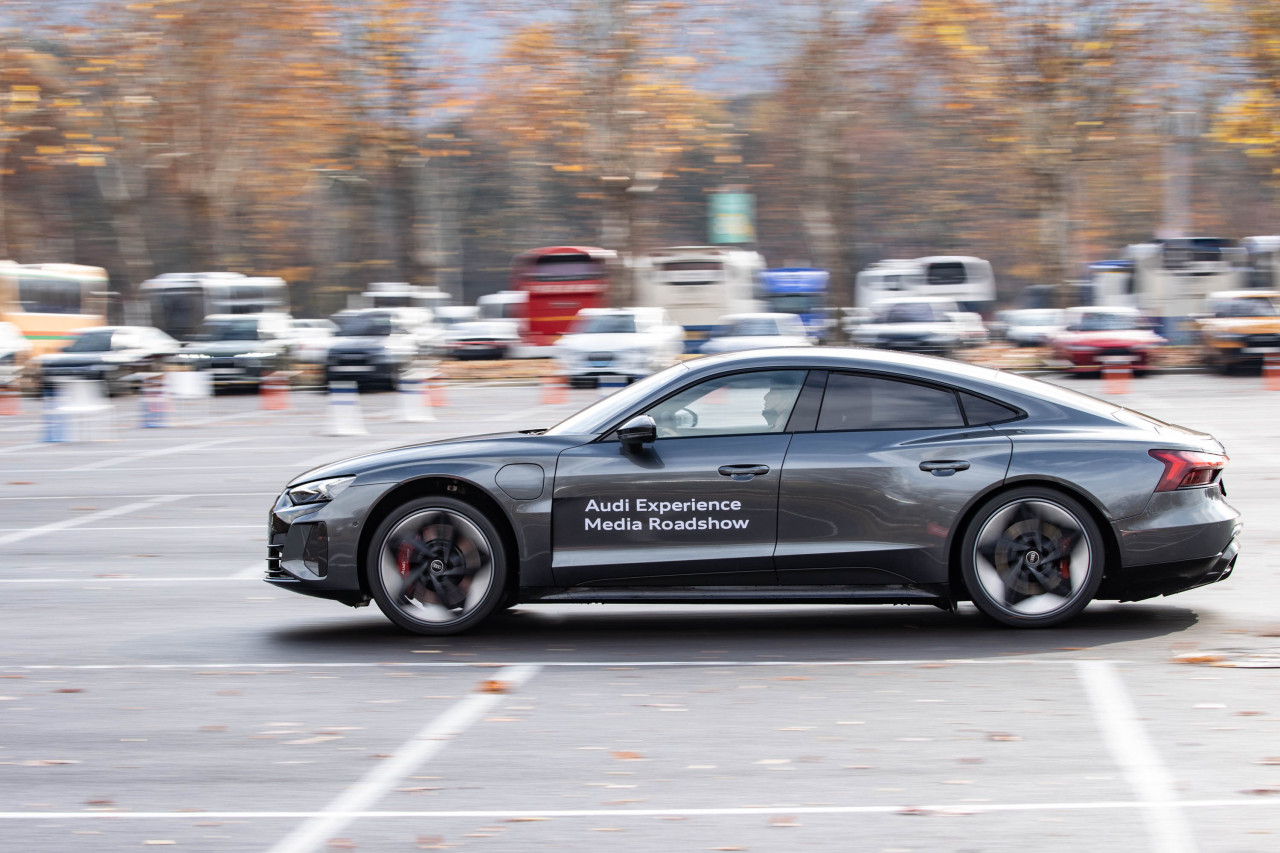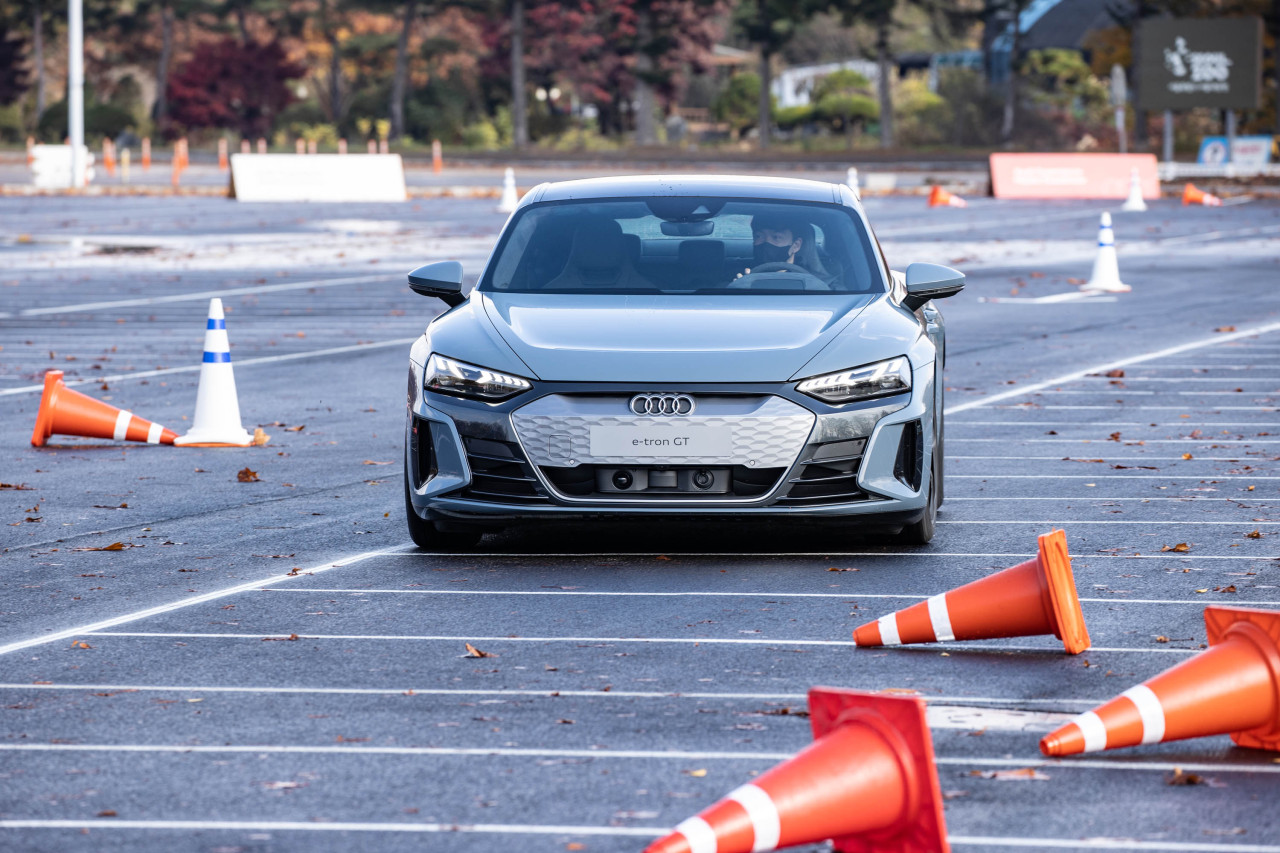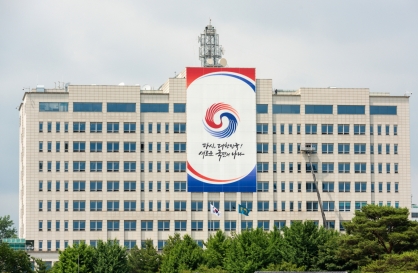 |
The Audi RS e-tron GT is test-driven in a parking lot at Seoul Grand Park in Gwacheon, Gyeonggi Province, Thursday. (Audi Korea) |
As the wave of electrification reaches sports cars, the race is heating up among global brands to push the performance boundaries of the relatively new powertrain.
In Korea, the competition is to intensify with Audi set to challenge the Porsche Taycan with its e-tron GT and RS e-tron GT.
Before the official launch of the two cars, The Korea Herald had the chance to take them for a short test drive on a course involving substantial speed and a slalom test at Seoul Grand Park in Gwacheon, Gyeonggi Province, Thursday.
The test drive of the two sporty vehicles on a short makeshift track -- they could not be driven on public roads yet because they have not officially been launched here -- offered a hint at what motor racing would sound like in the future: crowds cheering the quietly speeding vehicles drifting through a circuit.
 |
The Audi RS e-tron GT is test-driven in a parking lot at Seoul Grand Park in Gwacheon, Gyeonggi Province, Thursday. (Jo He-rim/The Korea Herald) |
Lacking the conventional engine growls, both cars felt ridiculously quiet, despite the needle of the speedometer shooting up to 100 kilometers per hour within seconds.
According to Audi Korea, it takes 3.6 seconds for the RS e-tron GT standing still to reach 100 kph, and 4.5 seconds for the e-tron GT. In overboost mode, the RS e-tron GT records 3.3 seconds, as the brand’s quickest car across all powertrains.
With strong twin electric motors in the front and rear, the e-tron GT can exert up to 530 horsepower, while the performance variant RS e-tron GT can pull off up to 646 horsepower. Their maximum torques are 65.3 kilogram-meters and 84.7 kilogram-meters, respectively.
Equipped with 93.4-kilowatt-hour battery, the RS e-tron GT can drive 472 kilometers on a single charge, while the e-tron GT can go up to 488 km, both figures based on global standards, Audi Korea said.
Because their lithium ion battery systems are placed at the lowest point of the body, between the front and rear axles, the vehicles have a low center of gravity that affords a stable riding experience.
The four-wheel drive shines through in the cars’ silky handling in the slalom test.
Audi said the e-tron GT marks the start of the brand’s electric sports car lineup, and that the model is a symbol carrying the brand’s DNA of the future.
 |
The Audi RS e-tron GT is test-driven in a parking lot at Seoul Grand Park in Gwacheon, Gyeonggi Province, Thursday. (Audi Korea) |
As to the appearance, the e-tron GT took in aerodynamics as a key design factor. The round coupe roofline -- a result from cooperative efforts by designers and engineers -- reduces air resistance to raise efficiency, according to Audi Korea.
Aside from the electric powertrain with zero emissions, interior details such as the upholstery have been made with recycled materials, the firm added.
Audi Korea has not yet revealed the specific date of the models’ release nor their retail prices, but Audi Korea managing director Jeff Mannering said they will be available before the end of this year.
“I believe the car will be delivered to customers in December,” Mannering said.
In Germany, the price starts from 99,800 euros ($112,800) for the e-tron GT, and 138,200 euros for the RS e-tron GT.
By Jo He-rim (
herim@heraldcorp.com)










